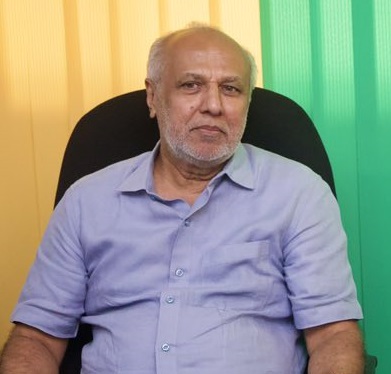
(Lanka-e-News -18.May.2025, 11.10 PM) In politics, there exists a peculiar affliction that stalks influential movements, popular parties, and charismatic leaders: the silent anticipation of succession, whispered as, “When will big brother die, and when will his porch be vacant?” Such quiet calculations are not rare; they lurk even within circles of loyalty, waiting for opportunity under the guise of inevitability.
The Sri Lanka Muslim Congress (SLMC) is no exception to this paradox. From the days of its late founder, M.H.M. Ashraff, up to the present, the SLMC has been a magnet for both mass Muslim support and internal betrayal. As the dominant political party among Sri Lankan Muslims, it commands a popular mandate that often transcends individual appeal. The party’s identity, rather than the personal charisma of any one figure, draws both followers and political refugees in search of relevance.
The late Ashraff, in his time, faced existential threats—from state intimidation to internal treachery. Even when trusted lieutenants turned their backs, even when breakaway factions attempted to undermine the party from within the corridors of power, Ashraff never compromised on his vision. He bore the criticism, shouldered the risks, and preserved the party’s essence through sheer strength of leadership.
Crucially, one man stood by him: Rauff Hakeem.
Hakeem’s rise was not born of happenstance or opportunism. Ashraff identified in him a successor: a leader marked by patience, resilience, and a cultivated intellect. Fluent in three languages, armed with legal acumen, and dispassionate in temperament, Hakeem was not merely a loyalist—he was Ashraff’s natural political heir.
After Ashraff’s untimely demise, the party faced its greatest leadership crisis. Contenders emerged with slogans and entitlement, but their efforts dissolved into irrelevance. It was Ashraff’s own protégés—trained in his political camp and nurtured in his ideology—who saw Hakeem as the rightful leader, and installed him accordingly.
Since then, Hakeem has weathered wave after wave of leadership challenges. Political opportunists, backed at times by government muscle, broke away to launch rival parties. But their attempts to dislodge Hakeem from the affections of the people met with little success. The SLMC, under Hakeem’s stewardship, has remained the most recognisable and credible Muslim political voice in Sri Lanka.
Indeed, every time adversaries launched a new slogan, it was the rank-and-file, the grassroots warriors of the party, who closed ranks and fortified his leadership. The evidence is not anecdotal—it is historical.
Repeatedly, election after election, Hakeem has retained public confidence—not merely through oratory or survival instincts, but through a persistent and unshaken commitment to the community he serves. His rivals, both within and outside the party, have underestimated the moral weight of continuity in a volatile political environment.
The 2020 parliamentary election was a vivid case in point. Hoping to exploit the nationwide “Anura wave,” dissidents within the SLMC and expelled defectors mobilised to sink Hakeem in the Kandy district. Their campaign, bordering on character assassination and sabotage, failed. Not only did Hakeem survive; he emerged strengthened—with divine grace, yes—but also with the undeniable support of his people.
Now, in the aftermath of local government elections, murmurs have returned. Social media once again brims with premature declarations and empty boasts. But these pronouncements bear the tragicomic tone of a wolf crying, “The sheep is wet!”—a lament neither believable nor consequential.
Let it be said clearly: Rauff Hakeem may have suffered a brief illness, but his leadership remains unweakened. His political vitality is intact. In both national and international forums, when the term “Sri Lankan Muslims” is uttered, the name Hakeem echoes loudest. He has not only advocated for domestic Muslim concerns but has also been a rare South Asian Muslim leader who raised his voice on global Muslim issues.
Remarkably, even his enemies now understand the irreplaceable necessity of Hakeem in Sri Lanka’s political fabric. His relevance, even to detractors, has become inescapable.
For two decades, individuals driven by petty personal ambition have attempted to unseat him. Yet each time, their resistance has not diminished him—it has reinforced him.
Today, party activists, community leaders, and intellectuals alike acknowledge a simple truth: Hakeem is not merely a politician; he is a statesman whose place in the current political landscape is not optional—it is essential.
M.N.M. Yaseer Arbaath (BA)
Ottamavadi
---------------------------
by (2025-05-18 20:06:06)
Leave a Reply